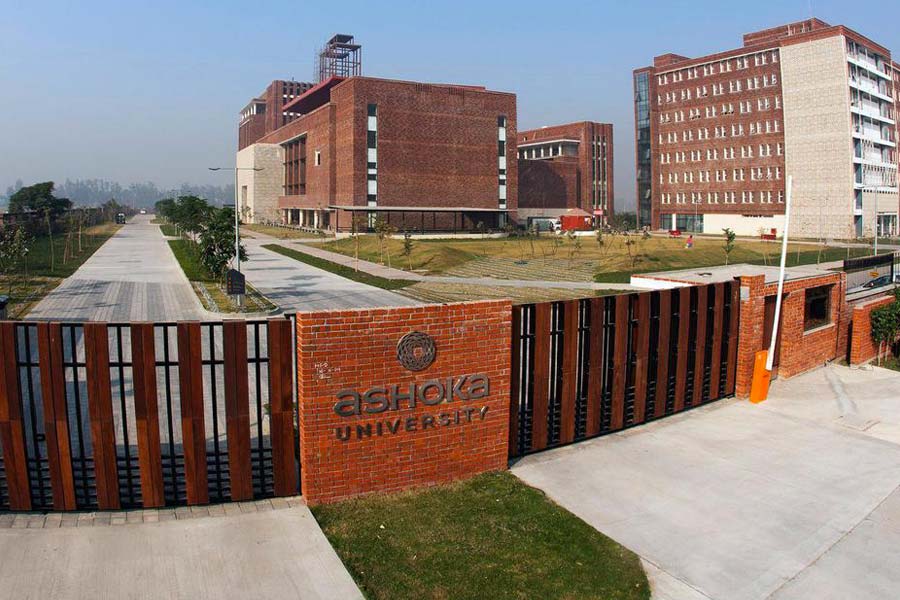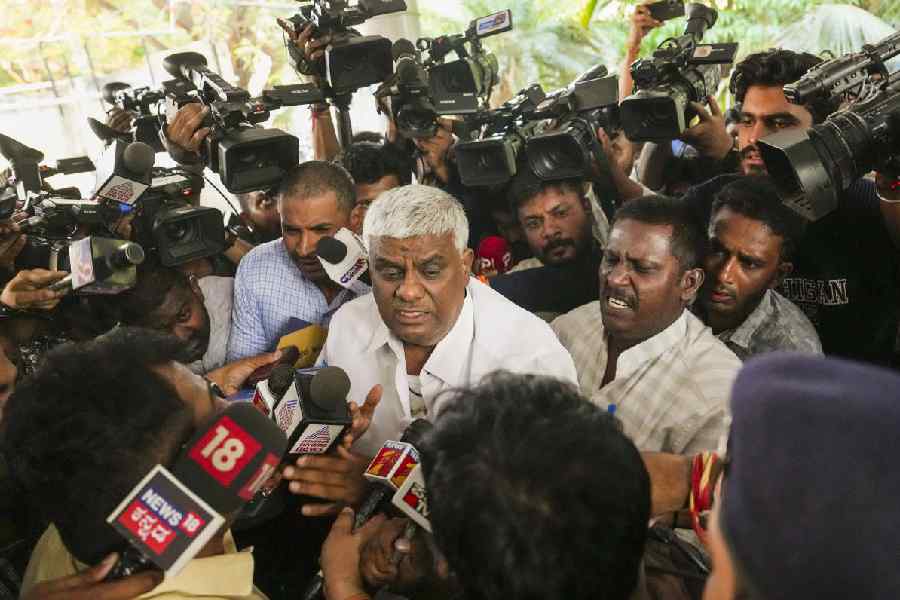The Intelligence Bureau is looking to interview senior academics at Ashoka University and particularly Sabyasachi Das, the assistant economic professor who published a paper alleging potential electoral manipulation in some constituencies in the 2019 election, according to The Wire.
IB detectives arrived at the Sonepat-based private liberal arts university on Monday to question Das, who resigned over the controversy, and wasn’t on the campus. The IB agents then indicated they would like to question other academics in the economics department but are said to have backed off when they were asked to make a written request for the interviews, The Wire alleged.
Academics were warned that the IB detectives might want to speak to them during a second visit on Tuesday. The Congress said in sending an IB team to the Haryana-based private university, the government “is only proving the point about the murder of democracy in India.”
The Wire reported that businessmen who have financially backed Ashoka say they have been fielding “angry calls from the Prime Minister’s Office as well as from the Union education minister, in which the scholar’s motives were questioned.”
There has been an uproar on social media about Das’ research paper titled “Democratic Backsliding in the World’s Largest Democracy.”
The paper, built on statistical models, suggested that the BJP won an unusual number of closely fought swing constituencies, especially in states where it was the ruling party at the time. Das said his findings might indicate electoral manipulation or that the BJP had been able to forecast which seats would be closely contested and mobilised party workers to campaign more heavily in those constituencies.
The BJP has strongly denied that there was any electoral manipulation or other wrongdoing. Some academics have also questioned Das’s findings while condemning attacks on him.
The research paper was published online before being sent for peer review. This “did not violate any accepted norm of academic practice,” the economics department has said.
Das resigned after Ashoka’s governing body distanced itself from his paper and asked an internal committee to look into his work.
Senior economics professor Pulapre Balakrishnan, who quit in solidarity with Das, has said he had no intention of withdrawing his resignation even though the university was understood to be negotiating Das’s reinstatement. “I don’t intend to change my mind,” Balakrishnan said.
Balakrishnan, who has served as the director of the Centre for Development Studies and professor at the Indian Institute of Management, Kozhikode, said his stand was “not based on the merits of the paper but the fact that there was a violation of academic freedom.”
“There is a standard (academic) procedure that he (Das) would send his paper out for peer review. If it gets published after peer review, that’s fine. Otherwise, he would have egg on his face,” Balakrishnan said.
“But for the university to intervene before the peer review stage and ask for a committee is a violation of academic freedom,” Balakrishnan said. “This is completely out of line with norms globally in academia or in India historically,” he said.
“It is also an unviable academic model. How can you now do social science research if you are always looking over your shoulder?” Balakrishnan added.
The professor, who trained as an economist at Oxford and Cambridge, stressed that he personally never had any problems with the university regarding academic freedom. “I am willing to give the university the benefit of the doubt and say that it’s an error of judgement, not a deliberate act of commission. But it’s a grave error of judgement,” he said.
The university was believed to be negotiating with Das to withdraw his resignation and a large part of the issues were said to have been resolved with only a few details remaining to be sorted out. Teaching is expected to start as scheduled on August 28 when the new term commences.
In recent weeks, the crisis has blown up with the political department and the departments of sociology and anthropology all issuing statements that Das should be reinstated and receive an apology from the university. Another meeting with faculty from several departments also demanded that the university reverse all its actions against Das.
Some 320 economists from 91 institutions nationwide issued a statement last week demanding the university “immediately reinstate” Das “unconditionally.
A letter from the staff to the university warned that unless the questions regarding basic academic freedom were resolved, faculty members would be unable to carry forward their teaching “in the spirit of critical enquiry and the fearless pursuit of truth that characterise our classrooms.”
For the private university, there are worries that the government might cancel the university’s UGC standing or withdraw its right to receive money from outside India under the Foreign Currency (Regulation) Act.
The academic uproar comes as the university is in the middle of a major expansion. A key backer and investor, Ashok Trivedi, the founder of IT services company IGate, has already donated Rs 100 crore to set up a department of biosciences. The university is also building a second campus which will house six academic buildings and have another 3,500 students. Trivedi was also the key backer of the Trivedi Centre for Political Data.
Ashoka, established in 2014 to serve as an Indian version of US liberal arts universities, wouldn’t comment.










